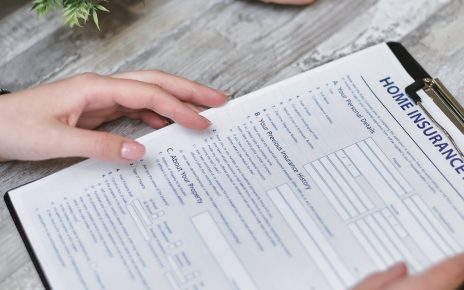For homeowners, home insurance is an essential safety net that protects against unanticipated circumstances that could result in large financial losses. Knowing home insurance is essential to safeguarding your investment, regardless of your level of experience as a property owner or buyer. In order to assist you make wise decisions and ensure peace of mind, this book delves deeply into the fundamental coverage that every homeowner should be aware of.
Home Insurance: Crucial Protection Every Homeowner Needs to Understand
For homeowners, home insurance is an essential safety net that protects against unanticipated circumstances that could result in large financial losses. Knowing home insurance is essential to safeguarding your investment, regardless of your level of experience as a property owner or buyer. In order to assist you make wise decisions and ensure peace of mind, this book delves deeply into the fundamental coverage that every homeowner should be aware of.
Home Insurance: What Is It?
A policy called home insurance, sometimes referred to as homeowner’s insurance, is intended to shield your house and its belongings against a variety of dangers. The cost of replacements, repairs, or legal obligations resulting from covered incidents are covered by this financial protection. Protection against theft, vandalism, accidents, and natural disasters is covered by standard plans.
The Financial Protection That Home Insurance Provides for All Homeowners
Purchasing a home is frequently the biggest financial commitment people make. Home insurance protects you against catastrophic financial loss due to unanticipated circumstances like a fire or burglary.
Mortgage Conditions
Before granting a mortgage, a lot of lenders need documentation of home insurance. It serves as collateral protection, guaranteeing the preservation of the property’s value.
Mental tranquility
You may concentrate on enjoying your house and your family knowing that you’re safe from possible dangers.
Home Insurance Policy Types
There is no one-size-fits-all approach to home insurance. To accommodate different homeowner demands, policies are divided into HO-1 through HO-8 categories:
HO-1: Basic protection against some risks, such as theft and fire.
HO-2: Wider coverage, encompassing freezing and falling objects.
The most popular policy, HO-3, provides protection against the majority of risks, with the exception of those that are specifically mentioned.
HO-4: Insurance for renters.
HO-5: All-inclusive protection for expensive properties.
HO-6: Condo owners’ coverage.
HO-7: Mobile home-specific policies.
HO-8: Protection for elderly residences with particular needs.
Important Elements of Household Insurance
Coverage for Dwelling
offers protection for your home’s foundation, roof, and walls.
Coverage for Personal Property
includes personal items like gadgets, appliances, and furnishings.
Liability protection protects you from legal action in the event that someone is hurt on your land.
Coverage for Loss of Use
covers short-term living costs in the event that your house becomes uninhabitable.
Coverage for Medical Payments
covers minor medical expenses for visitors hurt on your land.
Typical Risks to Home Insurance
Typically, home insurance covers a variety of incidents, such as:
-Damage from smoke and fire
-Burglary or theft
-Natural catastrophes (apart from earthquakes and floods, which might call for different regulations)
-Vandalism
-Falling things
Exclusions in Home Insurance Typical insurance frequently do not cover the following risks:
A separate flood insurance coverage is necessary for flood damage.
-Earthquake Damage: Protected by extra riders or specific insurance.
-Problems with maintenance: Wear and tear or neglect-related damage.
Riders and Add-Ons for Increased Security
In order to personalize their coverage, homeowners might include:
For residences in flood-prone areas, flood insurance is essential.
Properties close to fault lines require earthquake insurance.
Important Things High-value objects including jewelry, artwork, and collectibles are protected under coverage.
How Premiums for Home Insurance Are Calculated
The following are some of the elements that affect premiums:
-Location: Premiums may be higher for properties in high-risk locations.
-Home Value: Your home’s replacement cost affects how much your coverage will cost.
-Claims History: Premiums may go up if there is a history of repeated claims.
-Deductibles: Lower rates are frequently the outcome of higher deductibles.
Advice on Selecting the Best Home Insurance Plan
Examine and contrast providers
To discover the greatest value, get quotations from several different businesses.
Know the terms of the policy
Be mindful of the restrictions and limits of coverage.
Consult a Professional
You can find the ideal policy with the assistance of an insurance broker.
Procedure for Home Insurance Claims
There are multiple steps involved in filing a claim:
Report the Event
Inform your insurance company as soon as you can.
Keep a record of the damage.
Record videos, take pictures, and compile receipts.
Send in the Required Documentation
Present the necessary documentation and proof.
Follow-up
Keep in contact with the adjuster to monitor the status of the claim.
Ways to Reduce the Cost of Home Insurance
-Bundle Policies: Save money by combining your auto and house insurance.
-Raise Deductibles: To reduce rates, choose a greater deductible.
-Set up safety features: Smoke alarms and security systems help lower expenses.
Aspects of Law and Regulation
Homeowners should make sure their insurance complies with mortgage lender standards and be aware of state-specific restrictions. It is crucial to refer to local regulations as they may differ.
Home Insurance’s Function in Disaster Recovery
Home insurance is essential for reconstructing lives in the event of calamities or natural disasters. It guarantees prompt repairs, property replacement, and financial security in trying times.
Common Questions Regarding Home Insurance
What is usually covered by home insurance?
Your home, personal property, liability, and loss of usage are all covered.
If I have home insurance, do I still need flood insurance?
Yes, flood damage is not covered by typical policies.
When my needs change, can I adjust my coverage?
Of course. At any time, you can add riders or change the policies.
How frequently should I check my policy for home insurance?
once a year or following significant life events.
Is there a tax deduction for home insurance?
Generally speaking, no, however there are certain exceptions if you utilize your house for business.
How do I proceed if my claim is rejected?
Study the refusal, collect supporting documentation, and think about filing an appeal.
In conclusion
Investing in home insurance is crucial for safeguarding your assets, money, and peace of mind. You may securely protect your house from life’s unforeseen events by being aware of your coverage possibilities, tailoring policies to your need, and keeping up with exclusions and add-ons. Act now to guarantee the safety and security of your loved ones and your house.



